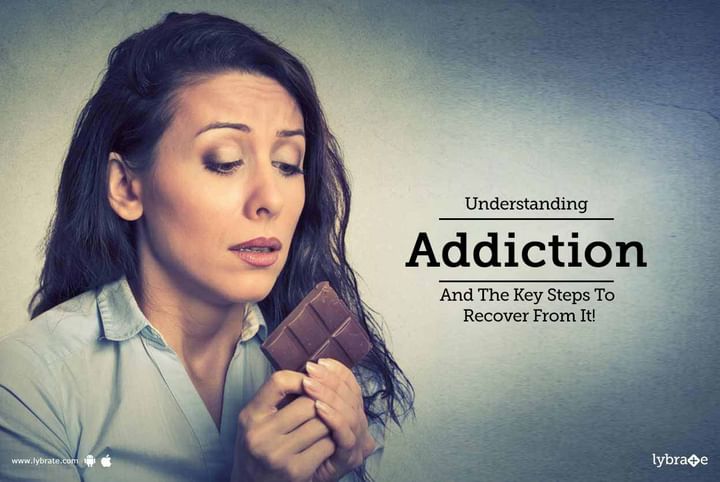Understanding Addiction And The Key Steps To Recover From It!
What is Addiction?
Addiction is a condition in which individual engages in using a substance or seeking a behaviour which leads to rewarding effects in the brain and it reinforce the individual to repeat the using or seeking behaviour again and again. Addiction develops gradually over a period of time and due to the repetition of same pleasure seeking pattern individual become physically and psychologically dependent on the substance or to any other object at the center of addiction.
People can get addicted to many substances like, alcohol, nicotine, drugs, solvents, etc. In case of these substances, physical and mental dependency both can occur. There are other objects and behaviours which also activate brain reward system in the same way and can make people dependent on them, like gambling, shopping, videogames, watching pornography, etc. But in case of these objects or behaviours, psychological dependency can be more prominent.
It has been seen that there are lots of other mental problems found among individuals suffering from any kind of addiction, like anxiety, depression, personality disorders, psychosis, etc. Individual who is addicted to a substance or an object or behaviour indulge into compulsive pattern of seeking the same inspite of their detrimental consequences. Consequences of addiction can be seen on person’s health, personal life, occupational life and social life. Addiction can lead to severe unmanageability in one’s life.
Especially when it comes to substances, like alcohol, nicotine or any kind of drugs, we must understand how the tolerance level of the brain develops? Tolerance develops when an individual no longer responds to a substance in the way he/she did at first. So, it takes a higher dose of the substance to achieve the same effect as when the individual first used it. This is why people with substance use disorders use more and more of a drug to get the “high” feeling that they seek.
A blog posted by an alcoholic:
“I always wished I could drink like other people. But I never could. I thought it was the third drink that got me into trouble. If I only had two, then I’d be fine. Thing is, once I put that first drink to my lips, I could no longer accurately predict what would happen next. I might go home, but I might not.
You’d think if I made it home, then my drinking was a success. Wrong! If I made it home after two drinks, there was an insatiable need raging within me and I was gonna take it out on you. After all, you’re the reason why I had to come home. I would punish my family by being silent, or mean, or emotionally distant.
Looking back, it was never intentional. I didn’t purposely choose not to go home. I didn’t leave the house with a suitcase containing a fresh set of clothes, a tooth brush and my cosmetics. Seriously, I was only going out for ‘a few.”
If anybody can relate to this or can understand this, he or she can understand tolerance, powerlessness and unmanageability.
How to recover from addiction?
To be an addict can’t be anybody’s choice, but recovery can be one’s choice. The first key step to come out of your addiction is developing acceptance. For a person to admit their powerlessness in addiction to drugs or alcohol or to any other object at the center of addiction is a monumental first step to recovery. Powerlessness means the person do not have any control over his/her use of substance. Powerlessness may indicate weakness and helplessness; some may think it fosters a victim mentality. Acceptance starts developing when a person admit that he or she is powerless over the substance or object at the center of addiction and their life have become unmanageable because of that.
Addiction is a disease and recovery is not an easy process. Individuals who are already into the grip of addiction need to seek help. One cannot go through the journey of recovery alone. There is a myth that addiction is a habit and one can get out of it if he or she has the ‘Will Power’. It’s actually not true. To get out of the disease you need to develop ‘Skill Power’, like skills to understand your physical and psychological mechanisms when it comes to the substance or the object of addictions, skills to handle cravings, skills to be assertive enough to manage social cues, skills to deal with day to day life stressors, etc. And in this process of developing skills and maintaining your recovery you need help of professionals.
A complete treatment program has three important approaches. First one is psychopharmacological (medicine) approach, second is psychotherapeutic approach and the third one is the 12 step program of alcohol/narcotics anonymous. A combination of psychotherapies along with the basic essence of 12 step program can bring greater outcomes in individual suffering from addiction.



+1.svg)
